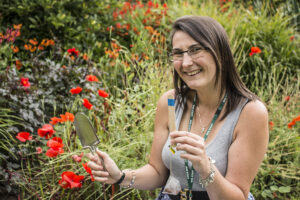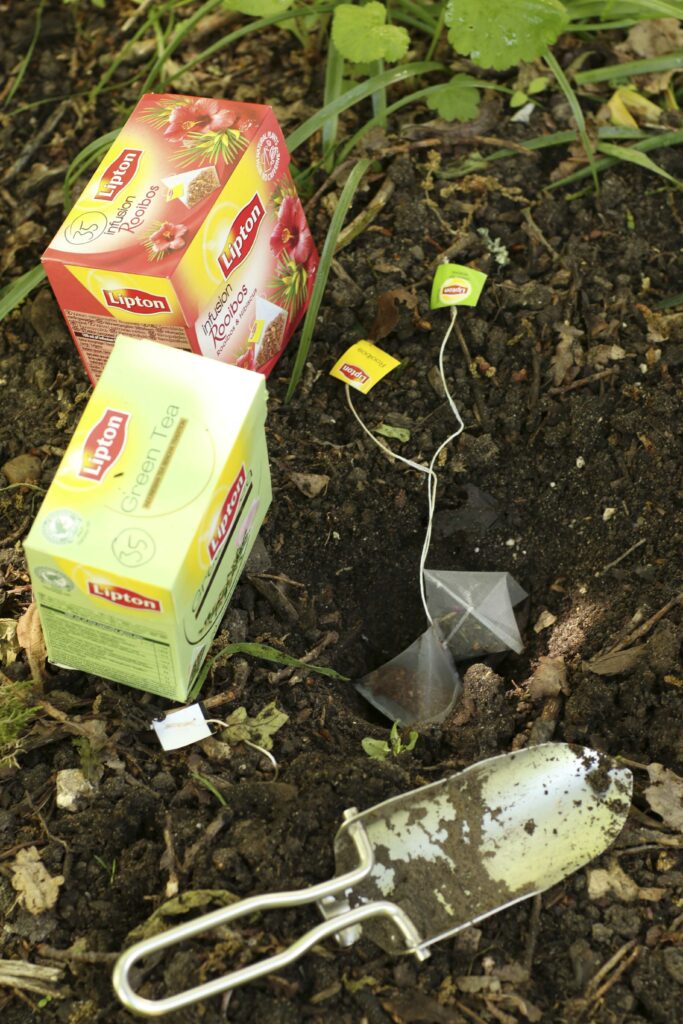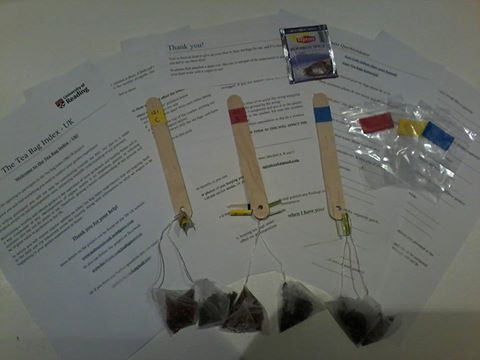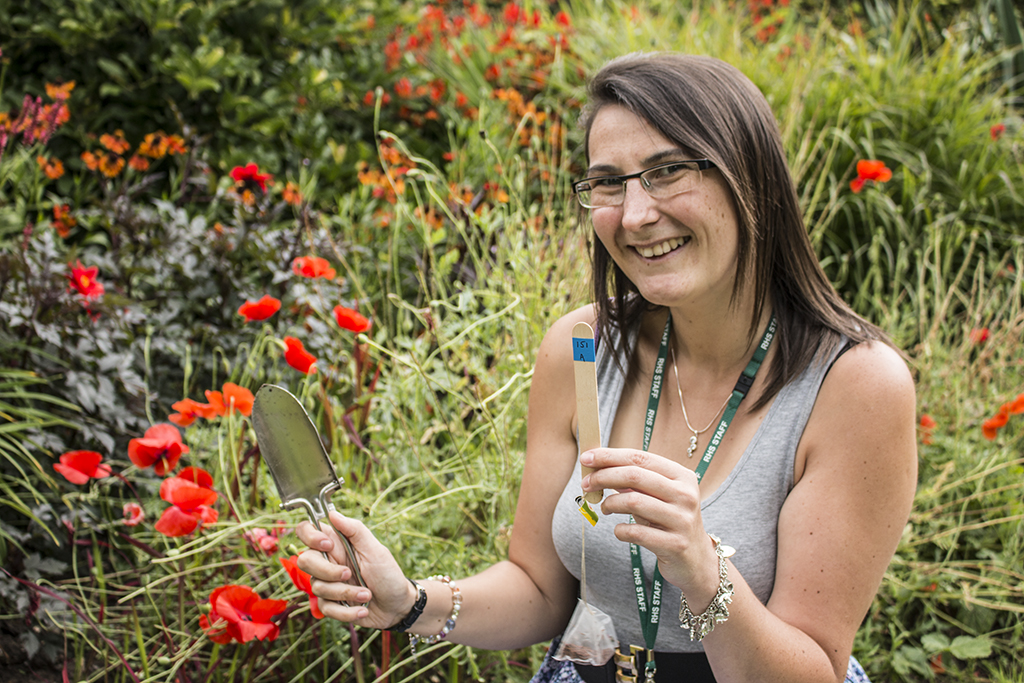Dr Sarah Duddigan at the University of Reading is working alongside scientists across the globe who are using tea bags to help predict future changes in climate. They’re not reading tea leaves in the supernatural sense but using tea bags as a piece of scientific equipment. The method, which measures soil decomposition, is known as the Tea Bag Index.

Decomposition of organic matter (dead plant and animal remains) in soil is an important process in any ecosystem. Microscopic organisms (or microorganisms), called decomposers, feed on the organic matter and break it down into its simplest components.
As organic matter is decomposed nutrients are released and are available for new plants to use to grow. Without this process, nutrients consumed by plants and animals would remain locked in their tissue and have no way of returning to the soil after they die, resulting in soil that is low in nutrients and of poor quality for plant growth.
It is for this reason that decomposition rate is often used in science as an indicator of soil health. Because they are too small to see, a simple and common way to study the microbial community in soil is to measure their activity: the decomposition rate.
The simplest method of determining decomposition rate is with the use of a litter bag experiment. This consists of a mesh bag filled with a known mass of plant material – a tea bag! – being buried in the ground, and after a certain period of time the bag is retrieved and re-weighed.
The material lost from the bag is a result of that material being decomposed by microorganisms in the soil. Therefore we know that the greater the mass reduction in the bag, the higher the decomposition rate and the more active the microbial community. This is the premise of the Tea Bag Index.

While having an active microbial population that is decomposing organic matter is important for soil health, there are other challenges. While organic matter is decomposing, it releases the greenhouse gas carbon dioxide (CO2) into the atmosphere.
A fast decay leads to more CO2 in the atmosphere and slow decay could lead to a greater proportion of carbon remaining in the soil. It is estimated that soils store a gigantic 2,300 billion tons of carbon worldwide; triple the amount than all the world’s plants. Therefore in order to gain a better understanding of global CO2 emissions from soils it is vital to know more about the rate of decomposition.
This seems to be a contradiction: on the one hand decomposition is good for plant health, but on the other has the potential to contribute to climate change. This is why projects like these, which aim to gain a better understanding of decomposition rates in soil, are so important. To date, tea bags have been buried in over 2000 locations across the globe and the team are working hard to publish their findings soon.

During her PhD studies, Sarah worked with hundreds of gardeners in the UK who buried tea bags in their gardens for her. This work has not only contributed to the global study but also aided understanding of the effects of gardening practises on soil carbon. You can read Sarah’s publications on the Tea Bag Index here.

